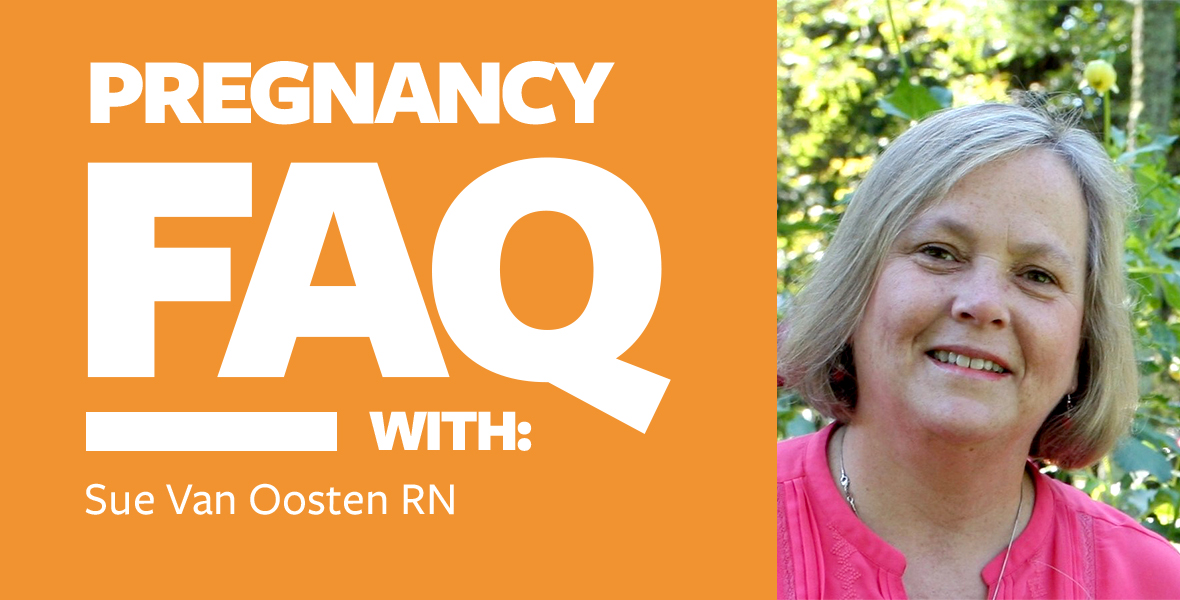Pregnancy with a Bleeding Disorder
Explore the various frequently asked questions below concerning pregnancy with a bleeding disorder. Also feel free to download or print the resource. Special thanks to Sue Van Oosten RN for providing the information for the FAQs.
- Should I avoid becoming pregnant if I have a bleeding disorder?
- What should I be aware of during the first trimester?
- Should I have special doctors during my pregnancy as a woman with a bleeding disorder?
- Does my bleeding disorder worsen during pregnancy?
- Are there any other additional concerns prior to and for delivery?
- Are there any concerns for my baby?
- What do I do after I have my baby to prevent bleeding?
About The Author
Sue Van Oosten RN, BScN is the present Hereditary Bleeding Disorder Nurse coordinator at the QEII Health Sciences Centre in Halifax, Nova Scotia under the direction of Dr K. Sue Robinson. She has been in this position since 2006 and over the years this adult program has grown and developed, now including a Pregnancy clinic once a month. Sue graduated from Ryerson Polytechnical Institute with a Nursing Diploma in 1984 and then went on to complete her Bachelor of Sciences in Nursing at Laurentian University in 1990. Over the years, Sue has worked in many areas of Nursing including Pediatrics Hematology/Oncology and ER, Poison Information, Labour and Delivery and Dialysis then settled nicely into the Bleeding Disorder Clinic. Presently the President of the Canadian Association of Nurses in Hemophilia Care (CANHC), Sue has been involved in the Bleeding Disorder community in many capacities over the years including through CHS and as a camp nurse.
Particularly for those with mild bleeding disorders, there is no reason why pregnancy cannot be considered. The key is to have a plan and so an early discussion with the family doctor, hematologist and/or obstetrician/gynecologist is recommended even before becoming pregnant. For those with more severe bleeding disorders, and who may have difficulties coming off birth control or methods to control heavy menstrual bleeding, considering pregnancy may be a more difficult decision. Again, a discussion with one or more physicians should take place before stopping any medications to avoid the complications of heavy menstrual bleeding.
Pregnancy is a very special time in a woman’s life. During this time, most women take good care of themselves to ensure the health of them self and their baby. A mother with a bleeding disorder has the added stress of making sure that her condition is considered in the plan through the pregnancy, delivery and the postpartum period. A pregnant woman with a bleeding disorder should have a good understanding of her condition including the name and severity. She should carry her Factor First /Treat First card and inform all new physicians. The first trimester comes with the highest risk of miscarriage for all those with bleeding disorders but especially for those with Severe Von Willebrand disease, Factor XIII deficiency, Factor 1 deficiency (afibinogenemia) and Factor X deficiency. With a planned pregnancy the risk of miscarriage can be minimized with factor replacement and good prenatal care. It is very important to contact your Bleeding Disorder Center as soon as pregnancy has been confirmed.
Care during pregnancy should be a team approach with several medical services involved. Early in pregnancy a pregnant woman should make the Bleeding Disorder Center and her family doctor aware. This allows the process of good prenatal care to begin and to ensure that the woman’s bleeding disorder is well controlled throughout the pregnancy. In many cases a referral back to the hematologist from the family doctor is necessary so the sooner this referral is sent the better, to get the process going. Some Bleeding Disorder Centers have Pregnancy clinics and are very helpful when focusing on the needs of the pregnant mother and the baby.
An obstetrician is a doctor who specializes in caring for a woman through pregnancy and delivery. Some family doctors still deliver babies however, most woman with a bleeding disorder are referred to an obstetrician for extra care and consideration. Close communication between the obstetrician and the hematologist is imperative to ensure a safe delivery for both mom and baby.
An anesthesiologist (or anesthetist) is the doctor that helps with pain control including the epidural for labour and/or in occasional cases, a general anesthetic for delivery. An appointment with the anesthetist should be arranged prior to the due date. This specialist must develop an understanding of the mother’s bleeding disorder and the best plan for her pain control during labour and delivery.
Depending on the bleeding disorder, some women may actually experience less effects of their condition than usual during pregnancy. High hormone levels can often stimulate the production of clotting factors especially factor VIII and Von Willebrand Factor in those with mild Factor VIII deficiency or VW disease. In many cases these factors may even approach normal during pregnancy maximizing at about 34-35 weeks gestation. This is not the case with some of the other factors deficiencies but most women experience few bleeding issues during pregnancy or childbirth. However, blood work should be monitored for factor levels especially as the date of delivery draws near to determine whether any treatment, factor product or Desmopressin will be necessary during labour, delivery and the postpartum period including consideration for an epidural. A letter with these recommendations should be dictated by the hematologist and sent along to the obstetrician and anesthetist.
Pregnant moms often develop anemia (low iron) during pregnancy. As a result a pregnant woman’s hemoglobin and ferritin (iron level) should be checked on a few separate occasions during the pregnancy. Often oral iron is suggested and in some cases intravenous iron infusions may be necessary to ensure a good hemoglobin and iron level going into delivery. That way, if the mom does have some excessive bleeding during delivery, she has sufficient iron stores to rebuild her hemoglobin in the postpartum period.
A pregnant mom with a bleeding disorder should have a final appointment with her hematologist at about 35 week’s gestation. At this time, depending on the factor levels (which tend to be the highest at 35 weeks), a plan can be made for delivery. A decision should be made as to whether any treatment will be required during labour and delivery and a letter with the recommendations should be dictated by the hematologist, including these suggestions and sent along to the obstetrician and anesthetist. Epidurals and cesarean sections can be performed if treatment is given prior if deemed necessary
Prior to delivery, the baby should be considered as well. For some bleeding disorders, like hemophilia, it may be determined prior to delivery if the baby is affected but in many cases it is not known. Some obstetricians recommend an amniocentesis for Hemophilia carrier moms but this is not always the case. If it is not known, a “gentle” delivery without harsh instruments may be suggested. Suction, forceps, scalp electrode and even intramuscular injections (vitamin K may need to be given by mouth) may be avoided. These recommendations may vary from center to center so this discussion should take place with the hematologist and obstetrician before labour and delivery. Sometimes it is determined if the new baby has a bleeding disorder by testing the cord blood but most often the baby is not tested until he/she is older or requires a procedure. Circumcision should not be considered unless it has been determined that the baby does not have a bleeding disorder. Babies with certain Factor deficiencies may be at risk of intracranial bleeding (bleeding in the brain) or bleeding from the umbilicus (belly button) so signs of both of these should be monitored. It is suggested that you discuss all of your concerns with the hematologist and/or your obstetrician prior to delivery.
Most women who have a bleeding disorder do very well during the postpartum period. Breast feeding may in some cases protect the mom by helping to maintain higher hormone levels. But, this is only the case in some bleeding disorders (mild VWD and Factor VIII carriers with low levels). For hemophilia B carriers (and other deficiencies) with low factor levels, it is unlikely the levels will change but need to be followed during pregnancy and after pregnancy.
All women should be monitored for bleeding for the hours, day and weeks after having a baby as they may be at higher risk of bleeding and anemia. Women should be taught how to recognize normal vs. heavy bleeding and when to call their team. Blood testing for hemoglobin and iron levels should be done at some point after delivery to ensure they are sufficient for a healthy postpartum period.
Depending on the severity of the bleeding disorder, some women may require ongoing Factor replacement for some time after delivery to prevent excessive bleeding issues. The length of time should be determined by the hematologist and would be based on the severity of the Bleeding disorder. As well, Tranexamic Acid pills may be prescribed post delivery to prevent heavy postpartum bleeding.










